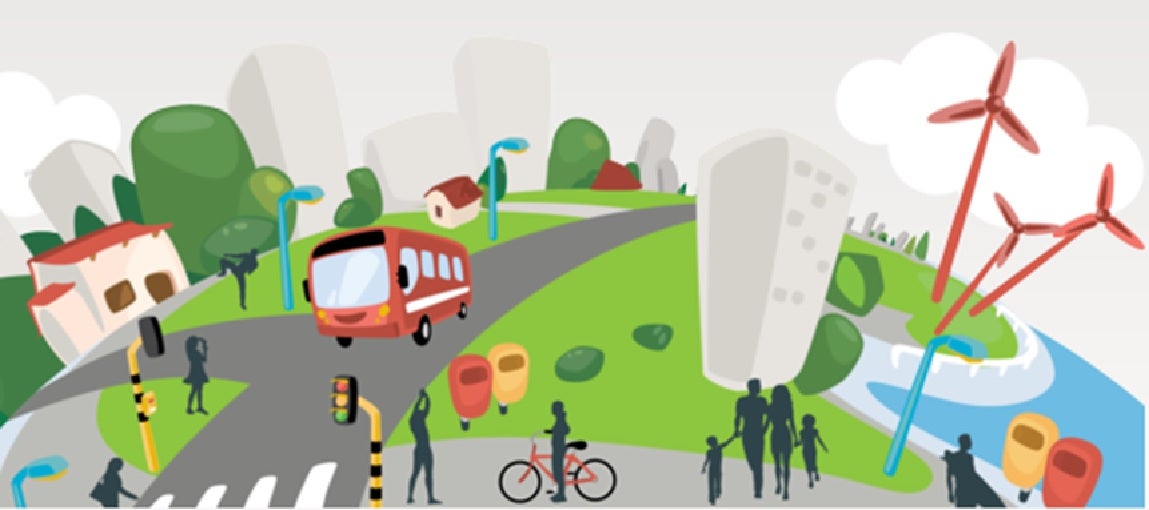Leer versión en Español / Leia versão em Português
By José Yitani, Learning and Knowledge Management Specialist at the Interamerican Institute for Economic and Social Development (INDES) of the IDB
The sustainability of cities in Latin America and the Caribbean is a highly relevant topic and represents a very complex challenge for the region.
Through the Emerging and Sustainable Cities Initiative (ESCI), the IDB has worked in more than 50 emerging cities in the region that face important challenges in fiscal, urban and environmental sustainability. During the past years, IDB specialists in different areas and sectors have been working hand-in-hand with local governments, identifying challenges and opportunities from improvement, which can be adapted to the context of each city.
Today we would like to share with you a new online course that brings together all this experience and will help you to understand the challenges that other cities are currently facing. The course will be open and free-of-charge to all the people interested in the topic, although is specifically oriented towards subnational public officials that are constantly looking for innovative ideas to develop solutions in their cities.
Besides this course, in this article we would like to let you know about other resources that will help improve your knowledge on the topic and allow you to become familiar with other professionals who work in this area.
Online training
The course “Leading the Sustainable Development of Cities (LDSC)”, designed by the IDB, provides a framework to analyze the challenges faced by cities in Latin America and the Caribbean and possible solutions to deal with them. It brings together the work and knowledge of more than 30 experts of the region and IDB´s specialists from different areas and sectors.
Through multiple videos, readings and discussion forums, the participants will learn about the work that has been done in emerging Latin American cities and the solutions that are putting into practice to reach sustainable development.
The course is structured in six weeks or units. The first week addresses the concept of sustainable development, under the premise that cities’ sustainability will only be reached with a comprehensive and multidisciplinary perspective. The second unit thoroughly covers and explores the ESCI tool, analyzing its phases, challenges and experts´ recommendations to face them. The rest of the units approach the different challenges faced by the region’s emerging cities in areas such as economic, fiscal, urban, environmental, institutional and governance.
The course is open and free-of-charge through IDBx, the IDB’s online platform in edX. It is designed and addressed for an open audience, but specially focused on the needs of local public officials of intermediate cities in the region.
Specialized publications
Some IDB’s publications are used during the course. For example, the Methodological Guide of the Emerging and Sustainable Cities Initiative, which describes step by step the implementation of the ESCI methodology and its phases, covering form the professionalization of teams and basic data collection to the planning, implementation of strategies and set-up of a monitoring system to assure sustainability. Every chapter includes activities, results and examples, as well as definitions and useful advice.
Moreover, it refers to several of the Action Plans of cities that have finished the diagnosis phase and are now facing the challenge of implementing reforms to enhance their development.
Informational resources
We recommend that you be attentive of the Emerging and Sustainable Cities Initiative (ESCI) website where you can observe the progress of each city cities and find other sources related to the topic.
The Urban Dashboard is a tool that allows you to visualize the information gathered by our specialists and could be helpful to contextualize plenty of the contents presented in the MOOC.
In the Emerging Cities Blog, you will find up-to-date news and first-hand experiences from experts and our own specialists that work closely with the cities in the region. You can also follow us through our social networks in Twitter, Facebook or Vimeo were you will find more information and recent news.
We hope to see you soon in the virtual classroom!


Leave a Reply